Say Goodbye to Repairs: The Case for HVAC Replacement
Understanding key factors helps property owners determine the optimal timing for upgrading heating and cooling equipment.
Making informed decisions about aging HVAC systems requires careful evaluation of repair costs versus replacement benefits. Understanding key factors helps property owners determine the optimal timing for upgrading heating and cooling equipment.
Repair Cost Analysis
Professional HVAC technicians evaluate repair expenses relative to equipment age and condition. While minor repairs might extend system life temporarily, accumulated service costs often exceed replacement value within short timeframes. Analyzing repair histories reveals patterns indicating systematic component deterioration.
Age-Related Issues
Most HVAC systems maintain reliable operation for 15-20 years with proper maintenance. Beyond two decades, component failures have increased in frequency and severity. Professional replacement specialists assess equipment conditions to recommend appropriate upgrade timing before catastrophic failures occur.
Energy Efficiency Impact
Aging systems require increasing energy consumption to maintain comfortable temperatures. Monthly utility bills frequently show steady cost increases despite consistent usage patterns. Modern replacement systems featuring high-efficiency components can reduce energy consumption by 20-40 percent compared to older equipment.
Component Compatibility
Repairing older systems becomes challenging as replacement parts become scarce. Manufacturers discontinue support for outdated equipment, limiting repair options. Professional HVAC contractors identify potential parts availability issues during system evaluations.
Refrigerant Considerations
Systems using R-22 refrigerant face increasing operational challenges due to production phase-outs. Converting older equipment to accept alternative refrigerants proves impractical or impossible in most cases. Professional replacement with modern R-410A systems provides long-term serviceability.
Performance Degradation
Repeated repairs rarely restore original system performance levels. Efficiency decreases while operating costs rise despite maintenance efforts. Professional HVAC replacement delivers restored capacity and reliability through current technology implementation.
Advanced Features
Contemporary HVAC systems incorporate sophisticated controls that enhance comfort and efficiency. Variable-speed motors, multi-stage operation, and smart thermostats optimize performance while reducing energy consumption. Modern equipment designs simplify maintenance requirements.
Installation Quality
Professional HVAC replacement includes proper equipment sizing and installation procedures. Correct system design addresses building characteristics and occupant needs. Quality installation practices maximize efficiency and reliability benefits.
Comfort Improvements
New HVAC installations resolve common issues like temperature variations between rooms. Zoning capabilities allow independent control of different areas, while improved humidity management creates more comfortable environments. Professional system design addresses specific comfort requirements.
Indoor Air Quality
Modern HVAC systems feature enhanced filtration and ventilation capabilities, promoting healthier indoor environments. Advanced air cleaning technologies remove contaminants more effectively than older equipment. Professional replacement specialists integrate appropriate air quality features.
Safety Upgrades
Worn components in aging systems may create safety hazards, including electrical problems and carbon monoxide risks. Professional HVAC contractors identify potential safety issues during evaluation processes. Replacement eliminates risks while incorporating current safety technologies.
Warranty Protection
New equipment warranties provide valuable protection against unexpected repair costs. Professional HVAC replacement includes proper warranty registration and documentation. Manufacturer support remains available throughout warranty periods.
Property Value Enhancement
Updated HVAC systems positively influence property market values. Potential buyers recognize the benefits of modern, efficient equipment requiring minimal near-term investment. Professional replacement documentation supports property valuation processes.
Operating Cost Reduction
While HVAC replacement requires significant initial investment, reduced operating costs often offset expenses within reasonable timeframes. Lower energy consumption, decreased maintenance needs, and improved reliability contribute to positive financial returns. Professional analysis helps evaluate cost-benefit ratios.
Future Technology Options
Modern HVAC systems provide platforms supporting future capability integration. Professional replacement specialists consider potential upgrade paths when selecting equipment. Proper planning preserves options for incorporating emerging technologies.
Environmental Impact
New HVAC systems operate more efficiently while using environmentally preferred refrigerants. Reduced energy consumption decreases carbon emissions and other pollutants. Professional replacement helps meet current environmental standards.
Building Code Compliance
Professional HVAC replacement guarantees compliance with current building codes and safety regulations. Proper permits and inspections document installation quality. Code-compliant installations protect property owners while maintaining safety standards.
Maintenance Planning
New equipment requires less frequent maintenance while offering improved serviceability. Professional contractors establish appropriate maintenance schedules based on manufacturer recommendations. Systematic care protects replacement investments while maintaining efficiency.
Performance Verification
Professional HVAC replacement includes thorough testing confirming proper system operation. Airflow measurements, temperature differential checks, and control calibration verify performance levels. Documentation establishes baselines for future reference.
Making the transition from repeated repairs to complete system replacement delivers multiple benefits for property owners. Professional HVAC contractors guide clients through evaluation, selection, and installation processes, supporting optimal outcomes. Strategic timing of replacement projects provides reliable, efficient, and cost-effective heating and cooling performance for years to come.

